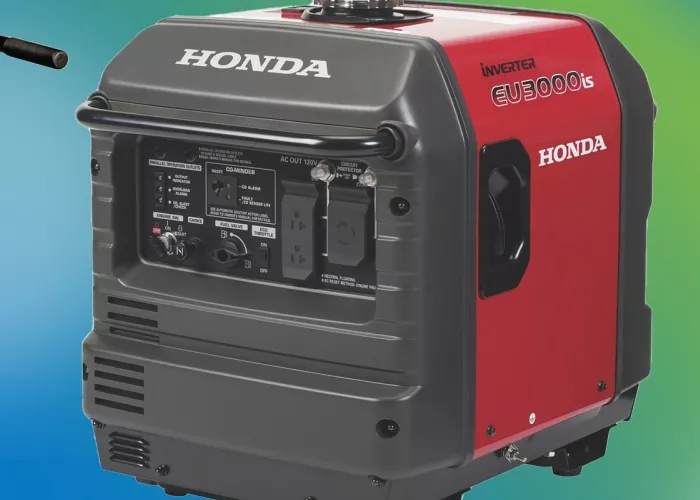In 2025, the demand for reliable home generators has surged due to increasing power outages and the need for emergency preparedness. Homeowners seek generators that offer efficiency, durability, and advanced features. This guide presents the top 10 home generators of 2025, highlighting their specifications, advantages, and suitability for various needs.
1. DuroMax XP13000HX Dual Fuel Portable Generator
The DuroMax XP13000HX stands out for its dual-fuel capability, allowing users to operate it on gasoline or propane. With a peak wattage of 13,000 and running wattage of 10,500, it’s suitable for powering essential home appliances during outages. Features include an electric start, CO alert technology, and a digital multimeter for monitoring voltage and frequency.
2. Generac GP9500E Tri-Fuel Portable Generator
Generac‘s GP9500E offers versatility with its tri-fuel system, operating on gasoline, propane, or natural gas. It delivers 9,500 running watts and 12,000 starting watts. The generator includes an electric start, low-oil shutdown, and a durable steel frame, making it ideal for home backup power.
3. Westinghouse WGen9500DF Dual Fuel Portable Generator
The Westinghouse WGen9500DF provides 9,500 running watts and 12,500 peak watts. Its dual-fuel capability allows operation on gasoline or propane. Features include remote start, a digital hour meter, and multiple outlets for versatility. It’s designed for heavy-duty use and can power major appliances during outages.
4. Champion 7500-Watt Dual Fuel Portable Generator
Champion‘s 7500-watt generator offers dual-fuel operation, delivering 7,500 running watts and 9,375 starting watts on gasoline. It features an electric start, Intelligauge for monitoring voltage and run-time hours, and a built-in surge protector. Its portability and power make it suitable for home and job site use.
5. Honda EU2200i 2200-Watt Portable Inverter Generator
The Honda EU2200i is known for its quiet operation and fuel efficiency. It provides 2,200 watts of clean, stable power, making it ideal for sensitive electronics. The compact design, parallel capability, and eco-throttle system enhance its usability for home backup and recreational use.
6. Briggs & Stratton PowerProtect 13,000-Watt Standby Generator
This standby generator offers 13,000 watts of continuous power and operates on natural gas or propane. It features a commercial-grade Vanguard engine, automatic transfer switch compatibility, and a durable enclosure. It’s designed for whole-house backup power, ensuring seamless operation during outages.
7. EcoFlow DELTA Pro Portable Power Station
The EcoFlow DELTA Pro is a high-capacity portable power station with a 3.6kWh battery, expandable up to 25kWh. It offers 3,600W output, fast charging, and solar panel compatibility. The DELTA Pro is suitable for home backup, RVs, and off-grid living, providing clean energy without noise or emissions.
8. Jackery Solar Generator 1000
The Jackery Solar Generator 1000 combines a 1,002Wh lithium battery with solar panel compatibility. It provides 1,000W of continuous power and 2,000W surge capacity. Features include multiple output ports, an LCD screen, and a compact design. It’s ideal for emergency backup and outdoor activities.
9. Anker SOLIX F3800 Portable Power Station
Anker’s SOLIX F3800 offers a 3.84kWh base capacity, expandable up to 26.9kWh. It delivers 6,000W of power, supports 240V appliances, and includes solar charging capabilities. The unit features a smart app for monitoring and is designed for home backup and off-grid use.
10. Explorer Bear 4000W Dual Fuel Portable Generator
The Explorer Bear 4000W operates on gasoline or propane, delivering 4,000 peak watts. It features ultra-quiet operation at 62 dB, CO Sentry technology, and a compact design with a telescopic handle. It’s suitable for camping, apartment use, and emergency preparedness.
Conclusion
Choosing the right home generator in 2025 depends on individual needs, including power requirements, fuel preferences, and portability. The models listed above offer a range of options from portable inverter generators to whole-house standby units, ensuring that homeowners can find a solution that fits their specific circumstances.
FAQs
What is the difference between portable and standby generators?
Portable generators are movable units that provide temporary power and are typically used for camping, job sites, or short-term outages. Standby generators are permanently installed systems that automatically provide power to a home during outages.
Can I run a generator indoors?
No, generators should never be operated indoors due to the risk of carbon monoxide poisoning. Always use generators in well-ventilated outdoor areas.
How often should I maintain my generator?
Regular maintenance is crucial. Check the manufacturer’s guidelines, but generally, oil changes, air filter inspections, and spark plug replacements should be performed after a set number of operating hours or annually.
Is it safe to connect a generator directly to my home’s wiring?
Connecting a generator directly to home wiring without a transfer switch is dangerous and illegal in many areas. Always use a transfer switch installed by a qualified electrician to ensure safety.
What size generator do I need for my home?
The size depends on the appliances and systems you want to power. Calculate the total wattage of essential devices and choose a generator that can handle that load, preferably with some additional capacity.

